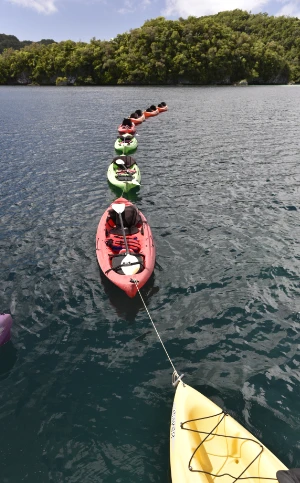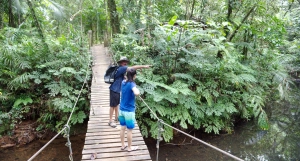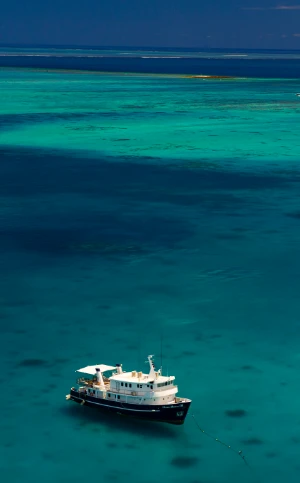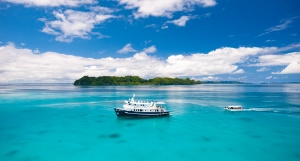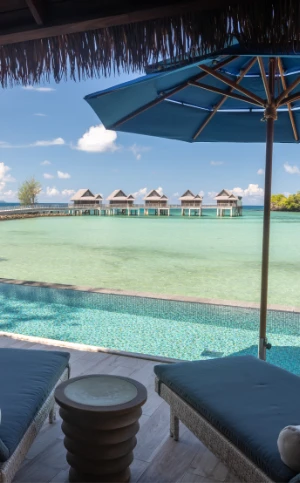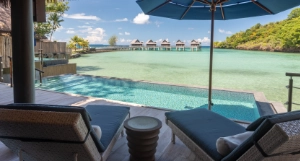Blue Corner in Palau isn't just another dive site - it's consistently ranked as the best dive site in the world. Located at the intersection of powerful currents and pristine reef formations, this underwater paradise offers an unparalleled marine spectacle that attracts divers from across the globe.
Introduction - Why Blue Corner Tops Every Diver's Bucket List
Whether you're searching for heart-pounding shark encounters or mesmerizing schools of fish moving in perfect synchrony, Blue Corner delivers an underwater experience that defies expectations.
In this comprehensive guide, we'll explore why Blue Corner has earned its legendary status, what makes it unique, and everything you need to know before planning your dive in this marine wonderland.
Blue Corner Palau: The World's Ultimate Dive Site (Complete Guide 2025)
Where is Blue Corner, Palau?
Blue Corner is strategically located at the northwest end of Ngemelis Island in Palau's southwest reefs. Situated approximately 25 miles (46 km) from Koror, the main city of Palau, it takes about 50-70 minutes to reach by speedboat. This remote location contributes to its pristine conditions and extraordinary marine life.
The dive site sits adjacent to another famous site, Blue Holes, within the larger Ngemelis reef complex. This entire area falls within the UNESCO World Heritage site of Rock Islands Southern Lagoon, designated in 2012, highlighting its ecological significance.
Quick Location Facts
📍 Northwest end of Ngemelis Island
📍 25 miles from Koror (46 km)
📍 50-70 minute speedboat ride
📍 Part of UNESCO World Heritage site
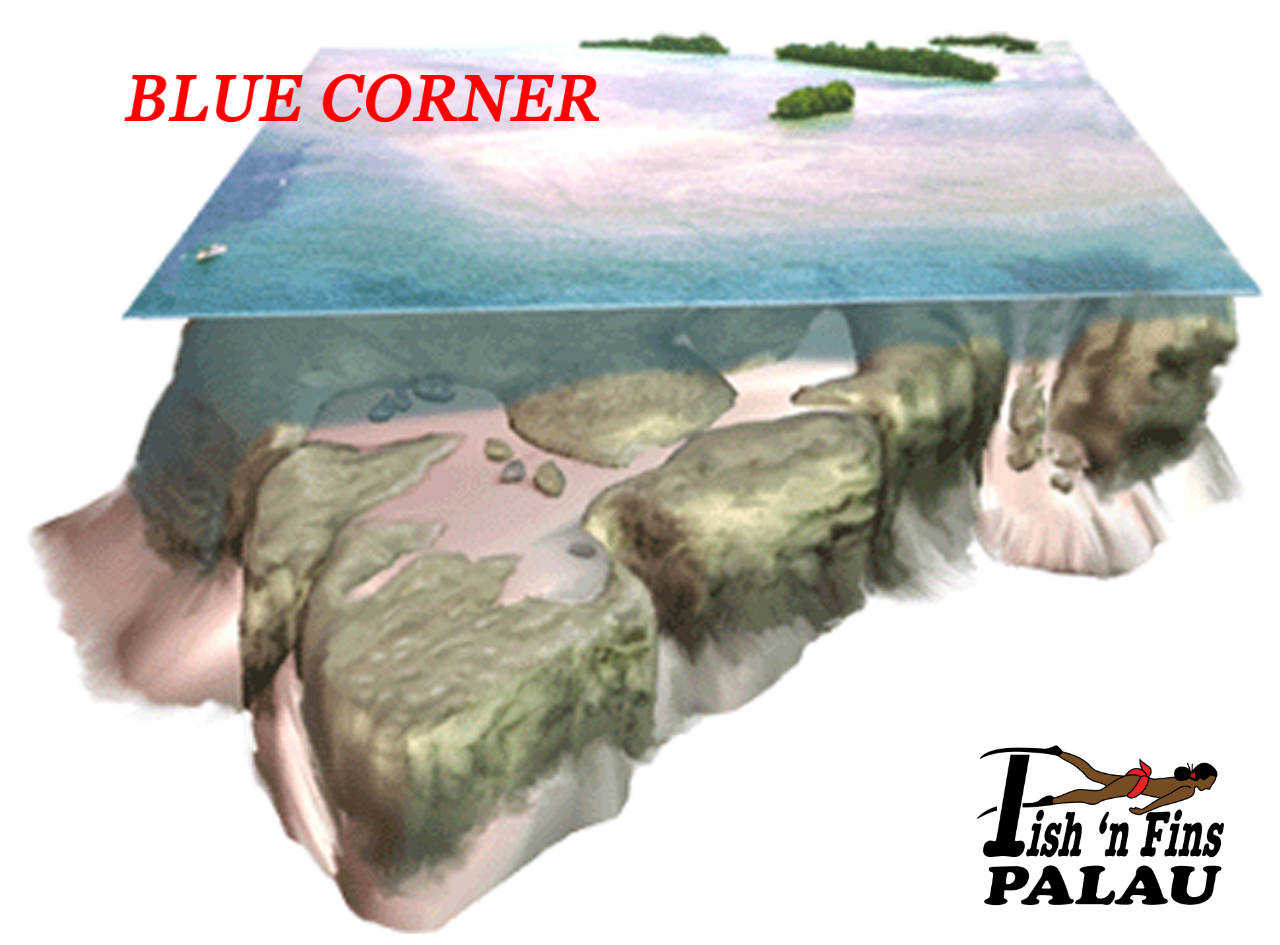
What is Blue Corner? The Geological Marvel Explained
Blue Corner is a unique underwater formation - a reef plateau that boldly juts out into the open ocean. This triangular terrace extends from the main reef wall like an underwater promontory at depths of 15-20 meters, creating a perfect vantage point to witness the rich marine life.
The site's distinctive structure creates a privileged position within Palau's barrier reef system. As one of the few channels allowing water to flow in and out of the lagoon during tidal changes, Blue Corner sits precisely where powerful currents hit the reef wall, flowing up and over the plateau. This hydrodynamic phenomenon brings abundant plankton, which in turn attracts an incredible diversity of marine life.
The shallowest point of Blue Corner is approximately 8 meters, with depths descending to about 30 meters as the reef drops off into the deep blue.
Is Diving in Palau Difficult? Experience Levels for Blue Corner
Blue Corner's reputation for thrilling dives comes with important considerations about difficulty level. The site experiences variable currents that can change direction - both horizontally and vertically - at any given moment. This creates an exhilarating drift dive environment that requires proper preparation and experience.
For safety and enjoyment, dive experience requirements vary based on current conditions:
- Strong current: Experienced divers only
- Moderate current: Intermediate divers
- No current: All divers, including beginners
Most dive operators recommend a minimum of 50 previous dives to ensure divers are comfortable enough to enjoy the experience. The currents at Blue Corner can change within seconds, so always defer to your dive guide's assessment of required experience levels for any particular dive.
Novice divers can sometimes experience Blue Corner during slack tide, but this means potentially missing out on the thrill of the drift dive and the abundant marine life that strong currents attract. For this reason, many divers choose to upgrade their qualifications before visiting Palau.

The Blue Corner Experience - What Makes This Dive Site Special
The Current - Palau's Natural Fish Magnet
The magic of Blue Corner lies in its currents. Depending on the tide and moon phases, these currents create distinctly different diving experiences each time you visit.
Two major factors influence these currents:
- The Equatorial/Counter Equatorial currents controlling water flow across the western Pacific
- Palau's barrier reef system with limited channels for water exchange
The currents at Blue Corner are strongest during full and new moons, when tidal differences reach their maximum of about 7 feet (2 meters). These powerful water movements bring nutrient-rich water to the reef, attracting an astonishing concentration of marine life.
The Reef Hook - Becoming Part of the Underwater Show
One of Blue Corner's distinctive features is the use of reef hooks - a practice that originated in Palau. When divers reach the edge of the plateau, they can deploy their reef hook into a dead part of the reef, slightly inflate their BCD, and essentially become "human kites" hovering effortlessly above the reef.
This technique offers multiple benefits:
- Conserves energy and air consumption
- Prevents accidental contact with the reef
- Provides stability in strong currents
- Creates the perfect vantage point to observe the marine life parade
Diver's Testimony
After 20 years of diving worldwide, nothing compares to being hooked in at Blue Corner. Watching dozens of sharks cruise by at eye level while schools of jacks swirl overhead is pure underwater magic. It's not just a dive - it's a life-changing experience.
Once hooked in, divers have "the best seat in the house" to witness the incredible spectacle of marine life attracted to the current. This unique interaction - becoming part of the underwater environment rather than just passing through it - creates an unforgettable connection with the ocean.
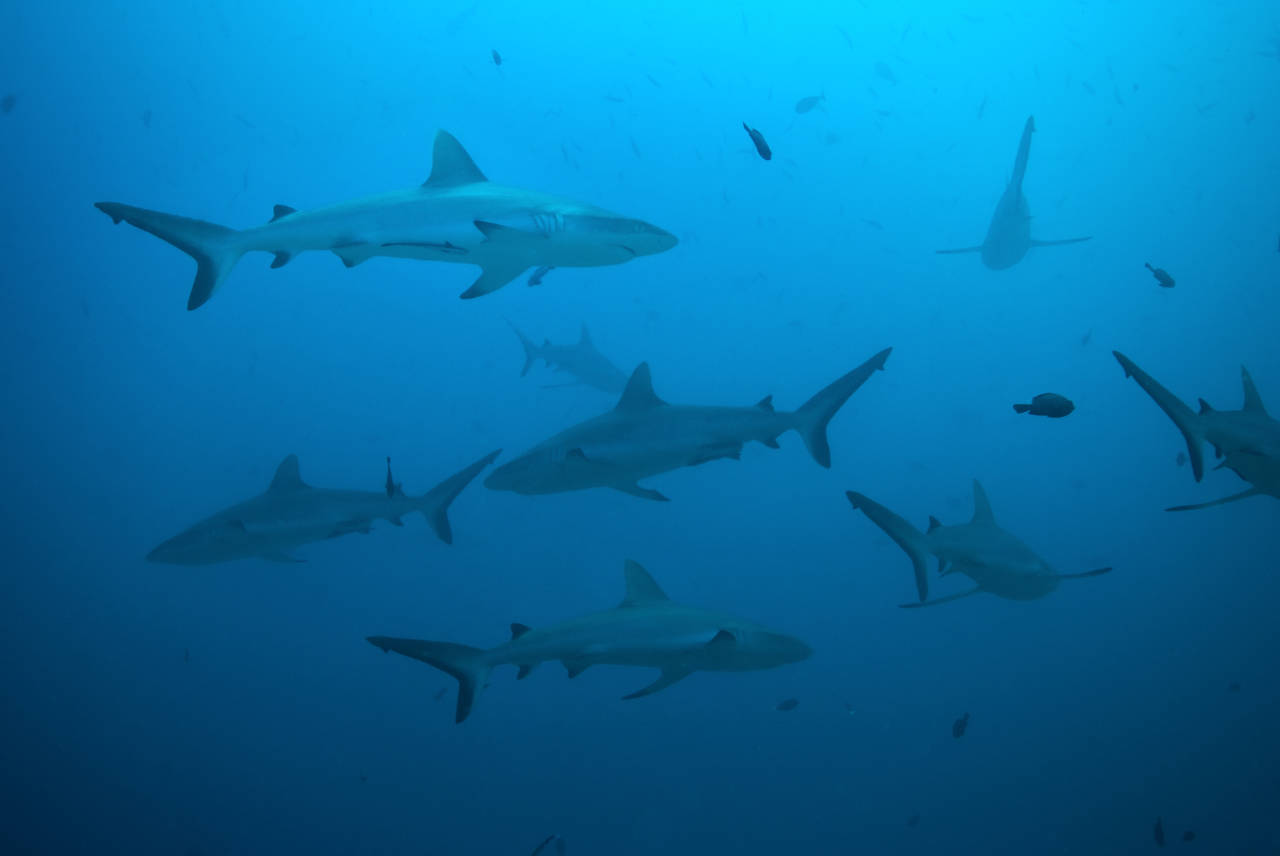
Marine Life - Blue Corner's Underwater Spectacle
Blue Corner offers one of the richest marine biodiversity experiences on the planet. According to the National Oceanic and Atmospheric Administration (NOAA), Palau's waters host approximately 1,400 species of reef fish, 300 species of soft corals, 400 species of hard corals, and 7 out of 9 of the world's giant clam species.
Sharks: The Stars of the Show
The site's main attraction is its reliable shark action. On a typical day, divers can expect to see between 20-50 reef sharks, predominantly grey and whitetip reef sharks. These magnificent predators patrol the edge of the reef, often swimming directly toward divers before gracefully turning away.
During certain seasons, particularly early in the year, lucky divers might witness a rare and spectacular event: sharks gathering from miles around to hunt during the enormous Moorish idol spawning aggregation.
Schools of Fish - Living Underwater Clouds
The sheer volume of schooling fish at Blue Corner is breathtaking. Huge schools create living clouds in the water:
These schools often number in the hundreds or thousands, creating dynamic living formations that pulse and flow with the currents.
Charismatic Megafauna and Rare Visitors
Beyond the regular residents, Blue Corner attracts an impressive list of larger marine species:
- Napoleon wrasse (often approaching divers with curious intelligence)
- Bumphead parrotfish
- Green and hawksbill turtles
- Giant trevallies
- Wahoo
- Mackerel
With luck and timing, divers might also encounter rarer visitors including hammerhead sharks, bull sharks, tiger sharks, whale sharks, mantas, eagle rays, marlin, or sailfish. Even whales have been spotted passing by the corner on occasion.
Reef Life: The Colorful Foundation
While the pelagic action captures most of the attention, Blue Corner's reef itself is a vibrant ecosystem. Divers can spot:
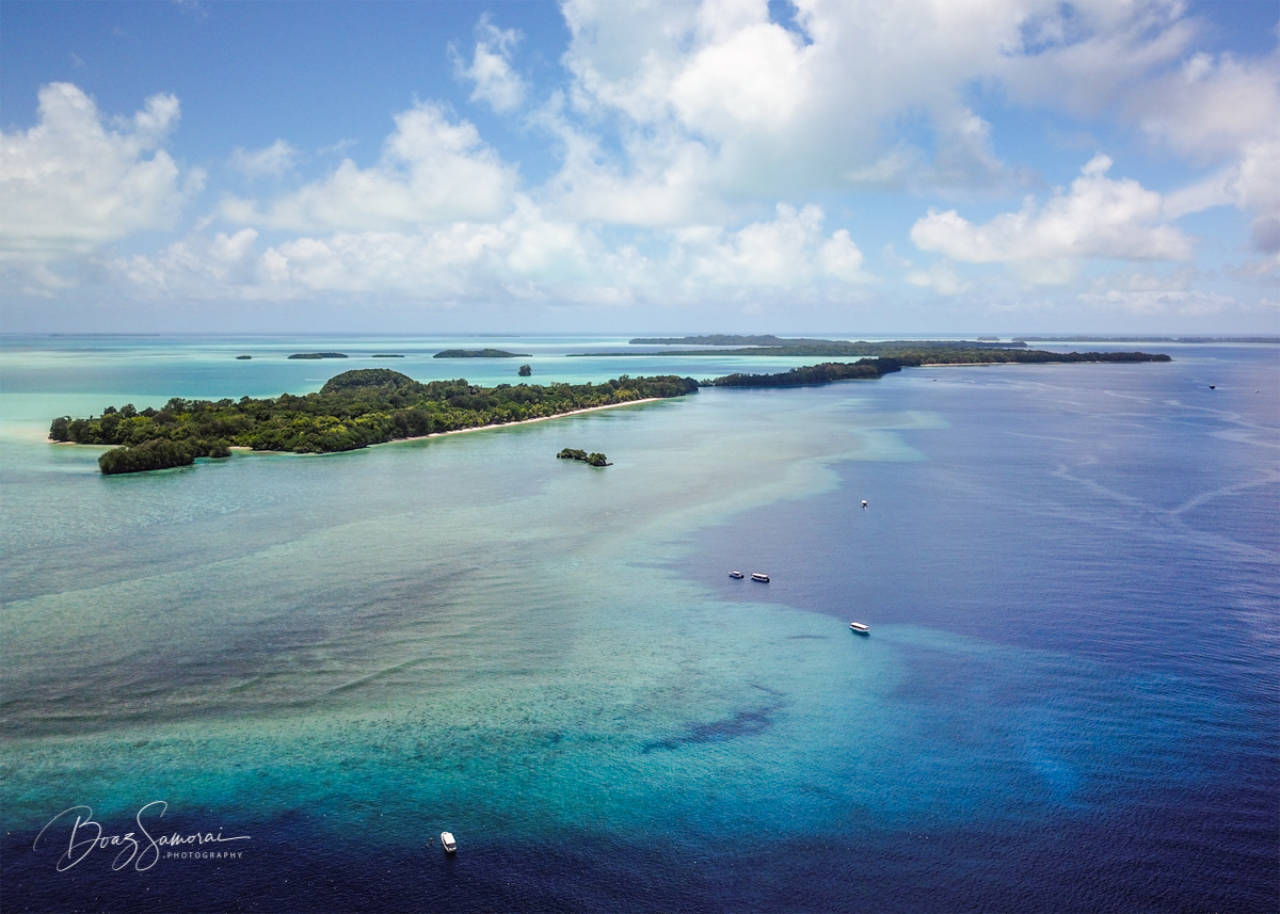
Diving Blue Corner - A Step-by-Step Guide
Entry Points and Dive Routes
There are two main approaches to diving Blue Corner, each offering a unique experience:
1. The Main Reef Wall Entry
Divers descend along the main reef wall, passing magnificent gorgonian fans as they make their way to the plateau. Once at the edge, divers can hook in and enjoy the show before drifting along with the current as it subsides.
2. Blue Holes Palau Combination
This spectacular option combines two world-class dive sites in one experience. Divers enter through Blue Holes - a set of four holes leading to an amphitheater-sized cavern - and then drift toward Blue Corner. Inside the cavern, divers can capture silhouetted photos framed by the ethereal blue light and observe the rich marine life, including:
- Tubastraea, wire, and black corals
- Sleeping whitetip and leopard sharks on the sandy floor (40m)
After exiting the cavern either through a 5m diameter window at 15m or a larger opening at 27m, divers drift toward Blue Corner, preparing to hook in for the main event.
Visibility Conditions
Exceptional Visibility
90+ feet (30+ meters)
Clear ocean water flows over the reef
Moderate Visibility
45-60 feet (15-20 meters)
Some guides believe the best visibility comes with an "incoming tide with outgoing current" - a current that moves from Blue Holes toward the Corner.
The Drift Experience
As you unhook and the current subsides, you'll drift above the hard coral-covered shelf, encountering a myriad of fish species. The gentle current will carry you along a sandy pathway where resting whitetip sharks are often seen. During your safety stop, you'll drift past the coral ridge into open ocean for one last chance to spot passing pelagics.
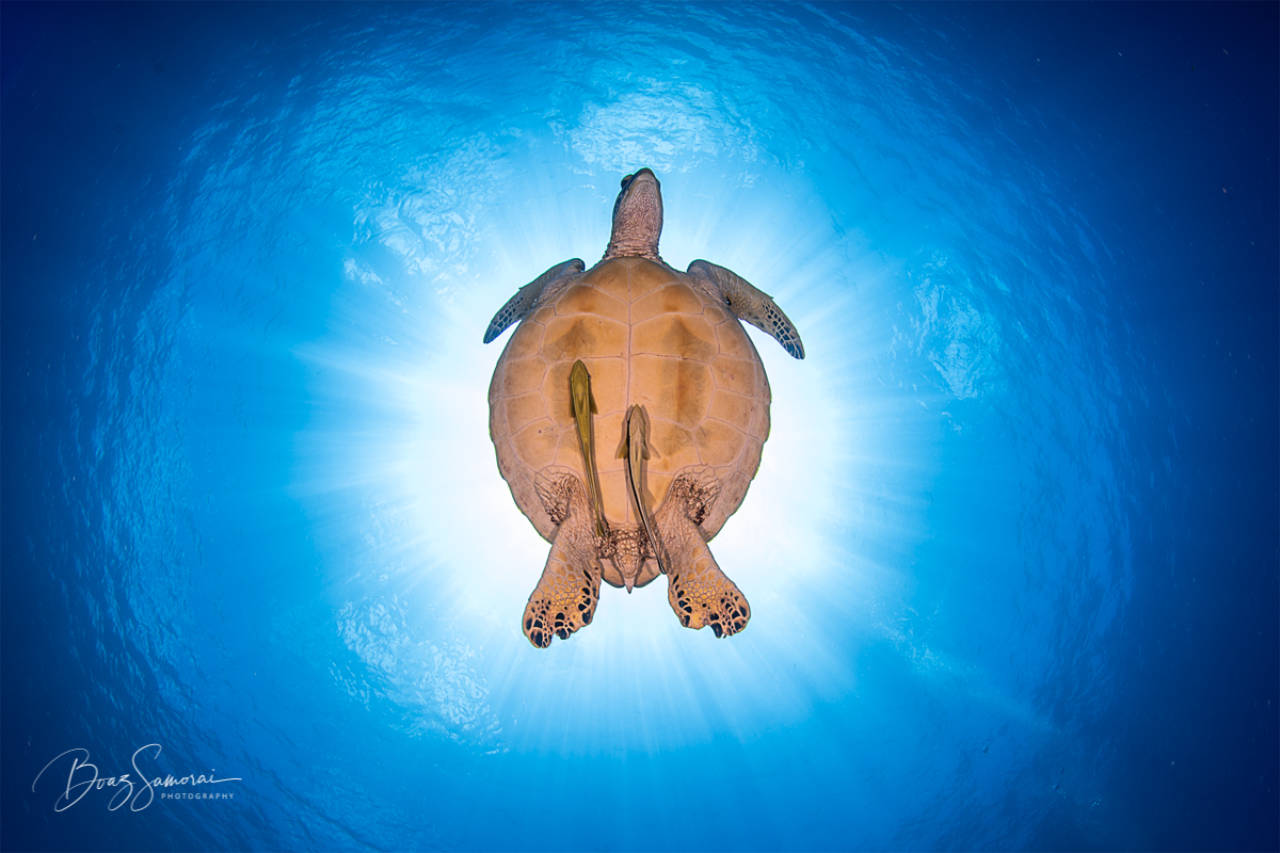
Fascinating Facts about Blue Corner
Discovery Story
Blue Corner was allegedly discovered by chance when a local dive guide turned left instead of right after a dive at Blue Holes.
Conservation Milestone
In 2009, Palau became the world's first shark sanctuary, with Blue Corner representing the crown jewel of this protected area.
UNESCO Recognition
In 2012, the Rock Islands Southern Lagoon (including Blue Corner) was declared a UNESCO World Heritage site.
Marine Protection
In 2015, Palau established the world's largest marine sanctuary covering 500,000 sq km (193,000 sq miles).
Naming Origin
While many believe Blue Corner got its name from the deep blue open ocean visible at the corner, local dive guides suggest there's a more interesting story behind the name (though the full story remains part of Palau's diving lore).
When to Visit Blue Corner, Palau
Blue Corner offers excellent diving year-round, but experiences can vary with seasons:
January-March
Potential to witness the rare Moorish idol spawning aggregation and increased shark hunting activity
Full and New Moon Periods
Stronger currents typically bring larger aggregations of marine life
Moon Phases Throughout the Year
Influence current strength and marine life behavior
Every dive at Blue Corner offers something new and different. Even local dive guides who have completed thousands of dives here claim they never get bored, as the site constantly surprises with new behaviors and sightings.
Conclusion - Why Blue Corner Deserves Its World-Class Reputation
Blue Corner stands as the ultimate testament to the wonders of marine ecosystems and the importance of conservation. Its unique combination of geographical features, powerful currents, and extraordinary biodiversity creates an underwater experience that simply cannot be matched anywhere else on Earth.
For serious divers, Blue Corner isn't just another dive site to check off a list - it's a place that demands multiple visits to truly appreciate its ever-changing splendor. Many divers travel to Palau specifically for this legendary site, despite the archipelago's many other underwater attractions.
Whether you're finning alongside dozens of reef sharks, marveling at schools of fish numbering in the thousands, or simply hovering in the current as the ocean's parade passes by, Blue Corner delivers the kind of transformative underwater experience that defines a diving career.
As Palau continues to lead the world in marine conservation efforts, Blue Corner reminds us why protecting these underwater treasures is so vital. It's not just a dive site - it's the pinnacle of what our oceans offer when given the protection they deserve.
Planning Your Blue Corner Dive Adventure
For the ultimate Blue Corner experience, consider booking with reputable local dive operators who know the site intimately. Their experienced guides can time your dives perfectly with tidal conditions and ensure you experience the very best this world-famous site has to offer.
Remember that Blue Corner is best experienced as part of a multi-day diving itinerary in Palau, allowing opportunities to dive this iconic site multiple times under different conditions. Many divers opt for liveaboard experiences to maximize their time at Blue Corner and the surrounding world-class dive sites.
Whether you're a seasoned diver or working toward the experience needed to tackle this legendary site, Blue Corner awaits with an underwater spectacle that will remain etched in your memory long after your bubbles have disappeared into the blue.


